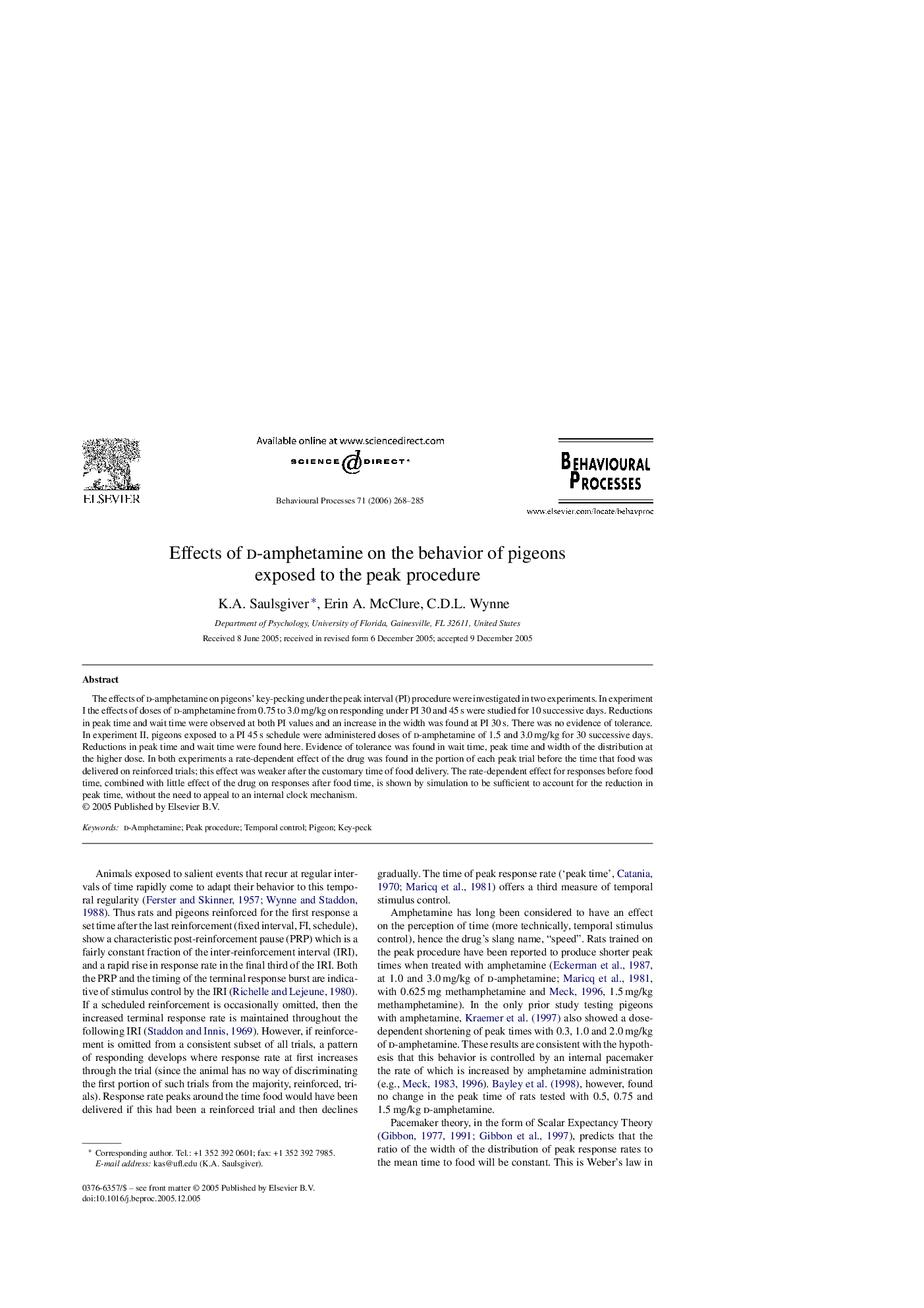| Article ID | Journal | Published Year | Pages | File Type |
|---|---|---|---|---|
| 2427885 | Behavioural Processes | 2006 | 18 Pages |
Abstract
The effects of d-amphetamine on pigeons' key-pecking under the peak interval (PI) procedure were investigated in two experiments. In experiment I the effects of doses of d-amphetamine from 0.75 to 3.0Â mg/kg on responding under PI 30 and 45Â s were studied for 10 successive days. Reductions in peak time and wait time were observed at both PI values and an increase in the width was found at PI 30Â s. There was no evidence of tolerance. In experiment II, pigeons exposed to a PI 45Â s schedule were administered doses of d-amphetamine of 1.5 and 3.0Â mg/kg for 30 successive days. Reductions in peak time and wait time were found here. Evidence of tolerance was found in wait time, peak time and width of the distribution at the higher dose. In both experiments a rate-dependent effect of the drug was found in the portion of each peak trial before the time that food was delivered on reinforced trials; this effect was weaker after the customary time of food delivery. The rate-dependent effect for responses before food time, combined with little effect of the drug on responses after food time, is shown by simulation to be sufficient to account for the reduction in peak time, without the need to appeal to an internal clock mechanism.
Related Topics
Life Sciences
Agricultural and Biological Sciences
Animal Science and Zoology
Authors
K.A. Saulsgiver, Erin A. McClure, C.D.L. Wynne,
